Living for Logan: How the Scherer family fought for a criminal trial after losing their 9-year-old in a distracted driving crash
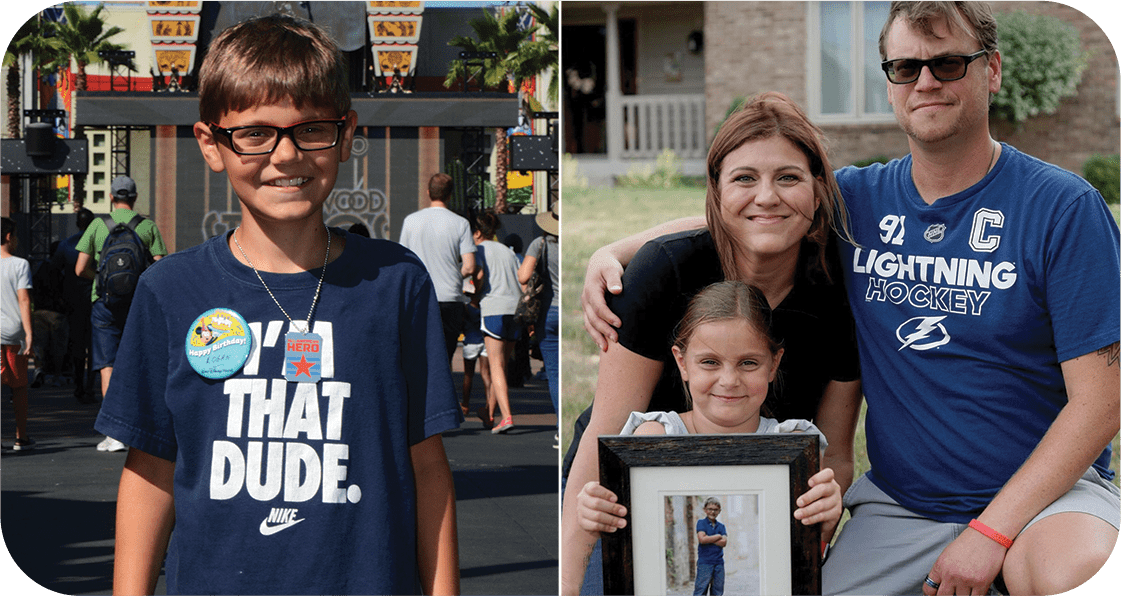
On September 15, 2016, the Scherer family was changed forever. They were struck by a distracted driver while sitting in traffic. The crash caused multiple injuries and killed their nine-year-old son, Logan.
Riddled with grief, Brooke and Jordan Scherer started “Living for Logan,” a safe driving organization that helps save lives through distracted driving advocacy and awareness.
In 2023, the distracted driver who caused the crash, Gregory Andriotis, was found guilty of one count of vehicular homicide and three counts of reckless driving. He was sentenced to 30 years in prison.
We spoke with Brooke and Jordan Scherer about their son Logan, how their family pressed law enforcement for action, and how they banded together after this tragedy and started “Living for Logan.”
Due to their persistence and fight to secure a criminal trial, case law was established for these types of crashes. This provides a foundational framework to find justice for people who have lost loved ones under similar circumstances.
Our conversation has been edited for clarity and brevity.
CMT: Hi Brooke and Jordan. Thank you for joining me today. Can you share your story with us?
Brooke & Jordan: On September 15th, 2016, we were headed north on I-75 in Florida. We were about an hour north of Tampa. We had pulled to a stop on I-75 and later found out we were stopped due to a three-mile backup. Jordan said 1,000 to 1,500 cars were stopped. We didn’t see all of them, but that’s how bad the wreck in front of us was.
Gregory Andriotis didn’t see us, and he had a lot of time. We’ve been through the trial and that gave light to a lot of information. It revealed a lot of the things that he was doing, down to the fact that he was so engrossed in his phone that he sped up his throttle. The throttle increased in his engine 12 to 14 percent in a half second before he hit us. So, he just didn’t see us. He sped up and ran right into us.
We would later find out through the trial that there was a multitude of things he was doing on his phone. The information that we focused on in the trial was the 10 minutes beforehand, which was damning in and of itself. But we had enough evidence to show that he was on his phone, in a browser paying a credit card bill, and during the time before that, he was on the phone with his wife.
The conversation that Jordan and I are adamant about changing is that this wasn’t a texting and driving incident. He wasn’t texting when he hit us. He was doing a multitude of different things.
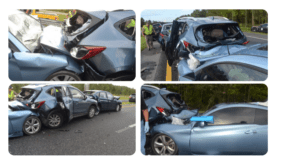
CMT: What was Andriotis doing on his phone?
Brooke: There are two main points that Jordan and I mentioned in sentencing and are adamant about changing the dialogue around this crash. This is not just a texting and driving case. This is a “everybody does all of these things in their car” case.
We have forensics that shows that Facebook was in the background. He was using Waze, he was using Google Maps, and he was checking his email. Ultimately what killed our son was when he went through the motions of searching, downloading, logging in, and going into an Excel spreadsheet. That’s what killed our son.
It’s about choices. The moment that you choose to distract yourself in your vehicle, you are now putting your and everybody else’s life on the line. You are endangering everybody. So, this was not an accident. An accident would have been if the road had been wet and he tried to brake and he could not avoid us. An accident would have been, had brake lights stopped immediately in front of him and he tried to brake, but he saw us and could not. There are so many different scenarios where this could have been an accident, and Logan still could have lost his life, but that would have been a completely different discussion.
CMT: How did you use the phone data in the trial?
Brooke: We were very fortunate in how things played out from the get-go for us. Andriotis was on the clock because he was driving for his employer and that opened up a door for us that most people can’t get through. We were able to get the cell phone records pretty much from the start. The company redacted some of it because it was their stuff but they didn’t have a choice but to supply it. Now, the actual deep dive took a long time to get that together.
We were only able to do that because of the criminal case. I mean, Jordan and I fought, we begged, we pleaded with the state of Florida to take this case. We also had the amazing backing of the Florida Highway Patrol behind us. We were all sitting in the office of the assistant state attorney and we said, something’s got to change.
A nine-year-old boy died. This had a very traumatic impact on so many people. We have so many close people in our lives who were on the scene that day and have gone through hell, just like we have because that rocks you to the core. What they saw, what they had to deal with, it’s powerful.
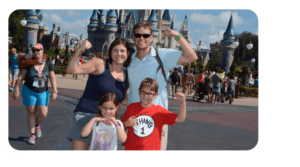
CMT: Can you explain the trial process? What was it like for you both?
Brooke: Jordan and I fought tooth and nail for this trial and there were a lot of dark times. It is not for the faint of heart and I could spend the next hour talking about that trauma. Not just the trauma of Logan’s death or what happened, but also what the trial experience was like for us because nobody talks about that.
I don’t think Jordan and I ever thought that we would go this distance. I think we knew we had to. We had no choice one way or the other, and along the way, we had to convince each other back and forth.
Up until the trial, Andriotis hadn’t had to sit in a courtroom with us or hear from others what it has done, what the impact looked like, what the carnage looked like, and the trauma that it’s had, not just on us, but for everybody else involved.
Jordan and I knew that we were leaving the fate into the hands of a six-person jury by actually going through with it even if it meant he served no time. The justice would have had to sit there and hear everything, see the photos, hear the 911 call, my 911 call, hear the witnesses, hear what his actions caused.
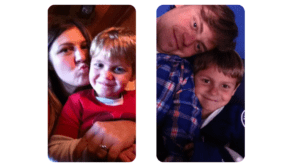
CMT: What was going through your head and what did you feel when you heard the guilty verdict?
Brooke: It was a very long week. There were a couple of times that we were concerned that things were going to end poorly. When they read the verdict, I didn’t know that there was a word to describe it.
I could feel this weight come off of my shoulders, that imaginary weight that had been there for some time, for a long time.
We’ve said before, it’s over. It’s okay, there’s relief in the fact that finally, after seven years, we could put it to bed. We can breathe, right? Time continues to move on.
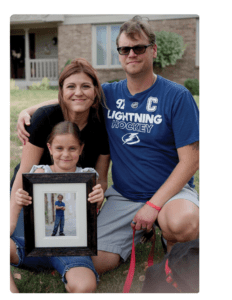
CMT: Where do you go from here?
Brooke: Given the fight that we’ve had for so long, it’s torn us down emotionally, mentally, but also for me physically. I’m trying to heal from all of that. I mean maybe there is some relief and maybe there is some peace. Maybe it’s the start of a new chapter. We can breathe again.
Jordan: It’s physically and maybe a little emotionally lighter now. There are so many things that you have to compartmentalize. As you move through tragedy and move through grief, things are different every day. So, we could also feel different every day and every moment throughout the day.